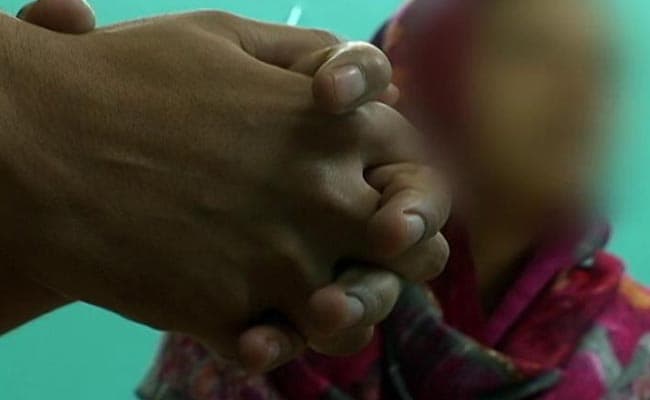The Supreme Court is currently hearing a batch of petitions against customs like triple talaq, polygamy
New Delhi:
A Muslim woman in Delhi who was divorced by her husband on WhatsApp has moved court for justice, but her own family is a test case in the debate over a uniform civil code and whether the court can intervene in personal laws. The Supreme Court is currently hearing a batch of petitions against customs like triple talaq and polygamy.
The 28-year-old woman, married for six years, received the three-word text that changed her life. "Talaq, talaq, talaq," said the WhatsApp message from her husband, who had left her soon after their daughter was born.
"My life is ruined, what will I do? How are we - me and my five-year-old daughter - supposed to go on," said the woman, speaking to NDTV.
She was married at 22 to a man chosen by her affluent family, which lives in old Delhi.
 Even before the WhatsApp divorce, she says, she was regularly harassed and threatened. "My husband and his family used to say that the dowry was not enough. When my daughter was born, my husband even grabbed my neck in anger."
Even before the WhatsApp divorce, she says, she was regularly harassed and threatened. "My husband and his family used to say that the dowry was not enough. When my daughter was born, my husband even grabbed my neck in anger."
A few months ago, she went back to her father's home, where she received her husband's message.
Though she wants the court to decide on her case, her father is torn between his daughter and tradition.
Many clerics, while opposing a uniform civil code, believe that men who divorce their wives on frivolous grounds should be punished even if it means enacting law.
"Talaq through electronic means like WhatsApp is misuse. Several scholars are of the view that such people should be punished," says Abdul Hameed Noumani, a leader of the Islamic organisation Jamiat Ulema-I-Hind.
"The maulanas need to understand the plight of women... you cannot have talaq over the phone and WhatsApp. We need change. We will also include her case in the ongoing case before the Supreme Court to press for an early decision," said Shaista Amber, president of the All India Muslim Personal Law Board and petitioner in the Supreme Court.
The centre recently responded to the top court's call for pointed questions of law on triple talaq, nikah halala and polygamy. The questions may be referred to a five-judge constitution bench.
The 28-year-old woman, married for six years, received the three-word text that changed her life. "Talaq, talaq, talaq," said the WhatsApp message from her husband, who had left her soon after their daughter was born.
"My life is ruined, what will I do? How are we - me and my five-year-old daughter - supposed to go on," said the woman, speaking to NDTV.
She was married at 22 to a man chosen by her affluent family, which lives in old Delhi.

Delhi woman, 28, married for six years, received the three-word text that changed her life
A few months ago, she went back to her father's home, where she received her husband's message.
Though she wants the court to decide on her case, her father is torn between his daughter and tradition.
Many clerics, while opposing a uniform civil code, believe that men who divorce their wives on frivolous grounds should be punished even if it means enacting law.
"Talaq through electronic means like WhatsApp is misuse. Several scholars are of the view that such people should be punished," says Abdul Hameed Noumani, a leader of the Islamic organisation Jamiat Ulema-I-Hind.
"The maulanas need to understand the plight of women... you cannot have talaq over the phone and WhatsApp. We need change. We will also include her case in the ongoing case before the Supreme Court to press for an early decision," said Shaista Amber, president of the All India Muslim Personal Law Board and petitioner in the Supreme Court.
The centre recently responded to the top court's call for pointed questions of law on triple talaq, nikah halala and polygamy. The questions may be referred to a five-judge constitution bench.
Track Latest News Live on NDTV.com and get news updates from India and around the world

